Maintaining good hygiene is essential for everyone, but for gentlemen, it plays a crucial role in presenting oneself with confidence and respect. Proper hygiene not only impacts personal health but also affects how others perceive you. Here are six essential masculine hygiene tips that every gentleman should know to ensure he remains clean, fresh, and confident.
1. Daily Showering and Proper Skin Care
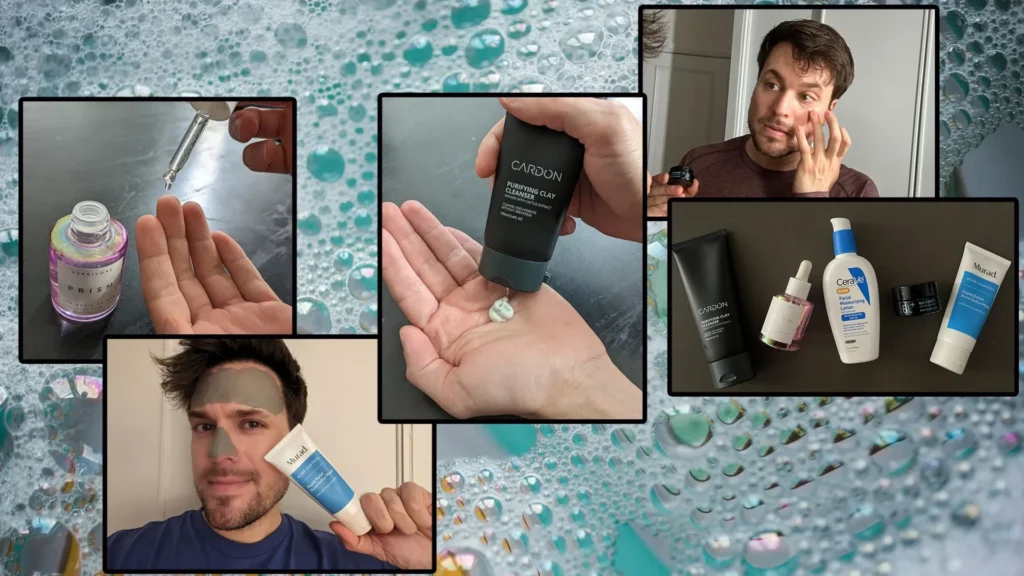
The Importance of Daily Showering
Daily showering is the cornerstone of personal hygiene. It helps remove dirt, sweat, bacteria, and dead skin cells that accumulate on your body throughout the day. For gentlemen, daily showering is essential to maintaining a fresh and clean appearance, which is particularly important if you lead an active lifestyle or have a job that involves physical labor.
Strategies for Effective Showering
- Use the Right Products: Choose a body wash or soap that suits your skin type. For most men, a mild, moisturizing body wash is ideal. Avoid products with harsh chemicals that can dry out your skin.
- Exfoliate Regularly: Use a loofah or exfoliating scrub to remove dead skin cells. Exfoliating once or twice a week can help prevent clogged pores and keep your skin smooth.
- Shower Temperature: Avoid very hot showers, as they can strip your skin of natural oils, leading to dryness. Opt for warm water instead.
- Dry Thoroughly: After showering, make sure to dry yourself thoroughly, especially in areas prone to moisture buildup, such as the groin and underarms. This helps prevent fungal infections and other skin issues.
Examples and Scenarios
- Scenario 1: If you have oily skin, use a body wash with salicylic acid to help control oil production and prevent acne.
- Scenario 2: For dry skin, choose a moisturizing body wash with ingredients like shea butter or glycerin to keep your skin hydrated.
Skin Care Routine
A proper skincare routine is vital for maintaining healthy and youthful skin. This includes cleansing, moisturizing, and protecting your skin from harmful environmental factors.
- Cleansing: Use a gentle facial cleanser to remove dirt, oil, and impurities from your face. Cleansing twice a day, in the morning and before bed, is recommended.
- Moisturizing: Apply a moisturizer suitable for your skin type to keep your skin hydrated. For men with oily skin, a lightweight, oil-free moisturizer is ideal. For dry skin, choose a richer, more emollient formula.
- Sun Protection: Use a sunscreen with at least SPF 30 daily, even on cloudy days. Sun protection is crucial to prevent premature aging and reduce the risk of skin cancer.
Examples and Scenarios
- Scenario 1: If you have sensitive skin, opt for a fragrance-free, hypoallergenic moisturizer to avoid irritation.
- Scenario 2: For men who are frequently outdoors, using a moisturizer with added SPF can save time and ensure consistent sun protection.
2. Oral Hygiene
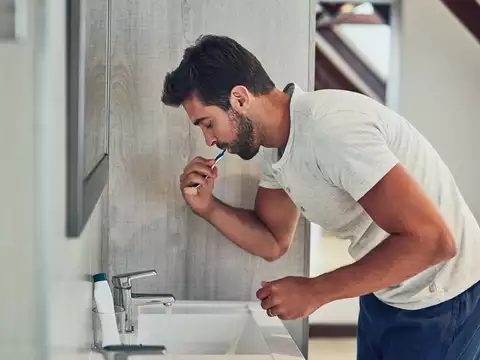
The Importance of Oral Hygiene
Good oral hygiene is essential for overall health and a confident smile. Neglecting oral care can lead to various dental issues, such as cavities, gum disease, and bad breath, which can affect both your health and social interactions.
Strategies for Maintaining Oral Hygiene
- Brush Twice Daily: Brush your teeth at least twice a day, in the morning and before bed. Use a fluoride toothpaste to help strengthen tooth enamel and prevent decay.
- Floss Daily: Flossing removes plaque and food particles from between your teeth and along the gumline, areas that a toothbrush cannot reach.
- Use Mouthwash: Incorporate an antibacterial mouthwash into your routine to kill germs that cause bad breath and gum disease. Look for mouthwashes with fluoride for added protection against cavities.
- Regular Dental Checkups: Visit your dentist at least twice a year for professional cleanings and checkups. Regular dental visits can help detect and address issues before they become serious.
Examples and Scenarios
- Scenario 1: If you have braces or other dental appliances, use special tools like interdental brushes or floss threaders to clean around the brackets and wires effectively.
- Scenario 2: For persistent bad breath, consider using a tongue scraper to remove bacteria and food particles from the surface of your tongue.
Additional Oral Hygiene Tips
- Healthy Diet: Maintain a balanced diet rich in fruits, vegetables, and whole grains. Limit sugary snacks and drinks, as they can contribute to tooth decay.
- Hydration: Drink plenty of water throughout the day to keep your mouth hydrated and wash away food particles and bacteria.
- Avoid Tobacco: Smoking and chewing tobacco can cause a range of oral health problems, including gum disease, tooth loss, and oral cancer. Quitting tobacco use is one of the best things you can do for your oral health.
Examples and Scenarios
- Scenario 1: If you frequently drink coffee or tea, rinse your mouth with water afterward to reduce staining on your teeth.
- Scenario 2: For those who struggle with dry mouth, chewing sugar-free gum can stimulate saliva production and help keep your mouth moist.
3. Hair Care and Grooming
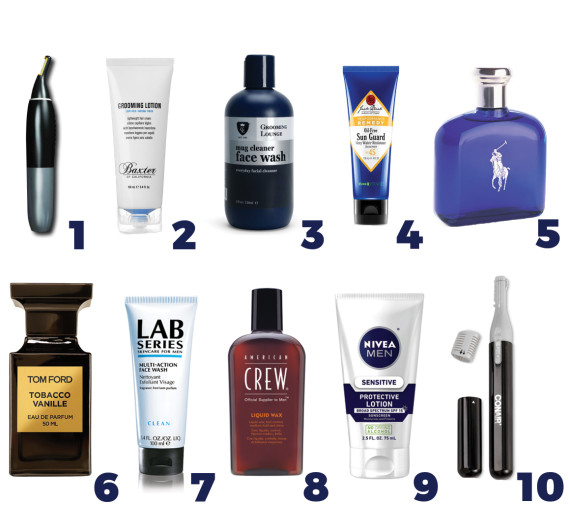
The Importance of Hair Care
Your hair is one of the first things people notice about you, so keeping it clean and well-groomed is crucial. Proper hair care can enhance your appearance, boost your confidence, and prevent common issues like dandruff and oily scalp.
Strategies for Effective Hair Care
- Regular Washing: Wash your hair regularly to remove dirt, oil, and product buildup. The frequency of washing depends on your hair type and lifestyle. Generally, washing two to three times a week is sufficient for most men.
- Choosing the Right Shampoo and Conditioner: Select products that match your hair type and concerns. For example, if you have dry hair, opt for a moisturizing shampoo and conditioner. For oily hair, a clarifying shampoo can help control excess oil.
- Avoid Overwashing: Overwashing can strip your hair of natural oils, leading to dryness and damage. Find a balance that keeps your hair clean without over-drying it.
- Regular Haircuts: Schedule regular haircuts to maintain a neat and well-groomed appearance. How often you need a haircut depends on your hairstyle and how quickly your hair grows.
Examples and Scenarios
- Scenario 1: If you have curly hair, use a sulfate-free shampoo and a leave-in conditioner to keep your curls hydrated and defined.
- Scenario 2: For thinning hair, consider using a volumizing shampoo and avoiding heavy styling products that can weigh your hair down.
Grooming Tips
- Beard Care: If you have facial hair, keeping it well-groomed is essential. Regularly trim your beard to maintain a neat shape, and use beard oil or balm to keep it soft and hydrated.
- Shaving: For those who prefer a clean-shaven look, invest in a quality razor and shaving cream. Shave in the direction of hair growth to minimize irritation and razor burn.
- Hair Styling: Use styling products like gel, pomade, or wax to achieve your desired hairstyle. Be mindful not to overuse products, as they can lead to buildup and greasy hair.
Examples and Scenarios
- Scenario 1: For a polished look, use a light-hold gel to style your hair into a classic side part.
- Scenario 2: If you have a beard, apply a few drops of beard oil daily to keep it soft, shiny, and manageable.
4. Nail Care
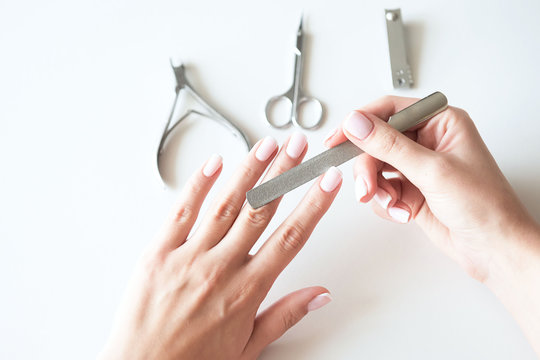
The Importance of Nail Care
Well-groomed nails are a sign of good hygiene and attention to detail. Neglecting nail care can lead to various issues, such as infections, ingrown nails, and unpleasant odors. Keeping your nails clean and trimmed is essential for maintaining a neat and professional appearance.
Strategies for Effective Nail Care
- Regular Trimming: Trim your nails regularly to keep them at a manageable length. Use a nail clipper or scissors and cut straight across to prevent ingrown nails.
- Filing and Smoothing: After trimming, use a nail file to smooth the edges and shape your nails. This helps prevent snags and splits.
- Cleaning Under Nails: Keep the area under your nails clean by gently scrubbing with a nail brush. This helps remove dirt and bacteria that can accumulate and cause infections.
- Moisturizing: Apply a hand cream or lotion to keep your hands and cuticles hydrated. Dry, cracked cuticles can be painful and lead to infections.
Examples and Scenarios
- Scenario 1: If you have brittle nails, use a strengthening nail polish or treatment to improve their durability.
- Scenario 2: For men who work with their hands, such as in construction or mechanics, keeping a nail brush in the shower can make it easy to clean under your nails daily.
Additional Nail Care Tips
- Avoid Biting Nails: Nail-biting can damage your nails and introduce bacteria into your mouth. If you struggle with this habit, consider using a bitter-tasting nail polish designed to deter nail-biting.
- Professional Manicures: Occasionally, treat yourself to a professional manicure. A trained nail technician can provide a thorough cleaning and grooming, leaving your nails in excellent condition.
- Protect Your Nails: When performing tasks that can be tough on your hands, such as gardening or cleaning, wear gloves to protect your nails from damage.
Examples and Scenarios
- Scenario 1: If you frequently expose your hands to water and harsh chemicals, use gloves to protect your nails and apply a strengthening treatment regularly.
- Scenario 2: For men who enjoy outdoor activities like hiking or camping, keeping a small nail care kit in your backpack ensures you can address any nail issues on the go
.
5. Body Odor and Deodorant Use
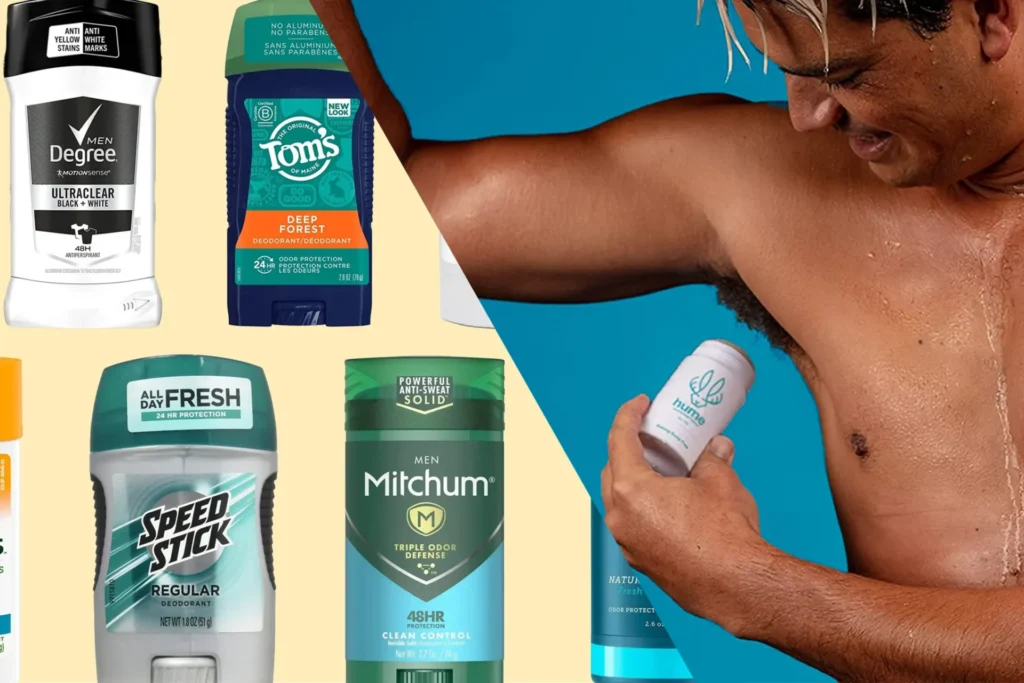
The Importance of Managing Body Odor
Body odor is a natural occurrence caused by bacteria breaking down sweat. However, managing body odor is crucial for personal hygiene and social interactions. No one wants to be remembered for having an unpleasant smell.
Strategies for Managing Body Odor
- Regular Showering: As mentioned earlier, daily showering is essential for removing sweat and bacteria that cause body odor. Pay special attention to areas prone to sweating, such as the underarms, groin, and feet.
- Using Deodorant and Antiperspirant: Deodorants mask body odor, while antiperspirants reduce sweat production. Choose a product that suits your needs and apply it to clean, dry skin.
- Wearing Clean Clothes: Change your clothes daily, especially undergarments and socks. Wearing clean clothes helps prevent the buildup of sweat and bacteria.
- Breathable Fabrics: Opt for clothing made from breathable fabrics like cotton and moisture-wicking materials. These fabrics help keep you cool and reduce sweating.
Examples and Scenarios
- Scenario 1: For men with sensitive skin, choose a deodorant that is free of alcohol and artificial fragrances to avoid irritation.
- Scenario 2: If you have a job that involves physical activity, keep a spare shirt and deodorant at work to freshen up during the day.
Additional Tips for Managing Body Odor
- Diet and Hydration: Certain foods, such as garlic and onions, can contribute to body odor. Maintaining a balanced diet and staying hydrated can help minimize this effect.
- Foot Odor: Foot odor can be particularly persistent. Wash your feet thoroughly, dry them well, and use foot powder or antiperspirant to keep them fresh. Rotate your shoes to allow them to air out between wears.
Examples and Scenarios
- Scenario 1: If you suffer from excessive sweating, known as hyperhidrosis, consult a healthcare professional for advice on specialized treatments or prescription-strength antiperspirants.
- Scenario 2: For athletes, using moisture-wicking socks and changing them after workouts can help prevent foot odor.
6. Clothing and Laundry Hygiene

The Importance of Clothing Hygiene
Your clothing plays a significant role in your overall hygiene. Clean, well-maintained clothes not only make you look good but also contribute to your personal hygiene by reducing the risk of skin infections and unpleasant odors.
Strategies for Clothing Hygiene
- Regular Washing: Wash your clothes regularly to remove sweat, dirt, and bacteria. Pay attention to care labels to ensure you’re cleaning your garments correctly.
- Proper Storage: Store your clothes in a clean, dry place. Avoid damp or humid environments that can lead to mold and mildew growth.
- Footwear Hygiene: Clean and air out your shoes regularly. Use shoe deodorizers or inserts to keep them smelling fresh.
- Undergarments: Change your underwear and socks daily. These garments are in direct contact with your skin and can harbor bacteria if not changed frequently.
Examples and Scenarios
- Scenario 1: For delicate fabrics, use a gentle detergent and wash them on a delicate cycle or by hand to extend their lifespan.
- Scenario 2: If you wear suits or formal attire regularly, invest in quality hangers and garment bags to protect your clothes from dust and damage.
Additional Tips for Clothing Hygiene
- Laundry Schedule: Establish a regular laundry schedule to ensure you always have clean clothes. Avoid letting dirty laundry pile up, as this can create an environment for bacteria and odors to develop.
- Stain Removal: Address stains promptly to prevent them from setting. Use appropriate stain removers and follow care instructions for the best results.
- Fabric Fresheners: Use fabric fresheners or sprays to keep your clothes smelling fresh between washes.
Examples and Scenarios
- Scenario 1: If you travel frequently, pack a small laundry kit with detergent, a stain remover pen, and a travel-sized fabric freshener to maintain clothing hygiene on the go.
- Scenario 2: For men who exercise regularly, washing your workout clothes immediately after use can prevent sweat and bacteria from setting in.
Conclusion
Maintaining good hygiene is a fundamental aspect of being a gentleman. By following these six essential masculine hygiene tips—daily showering and proper skin care, oral hygiene, hair care and grooming, nail care, managing body odor, and clothing hygiene—you can ensure that you present yourself with confidence and respect. Good hygiene not only enhances your appearance but also contributes to your overall health and well-being. Implement these strategies into your daily routine to stay clean, fresh, and confident in every aspect of your life.